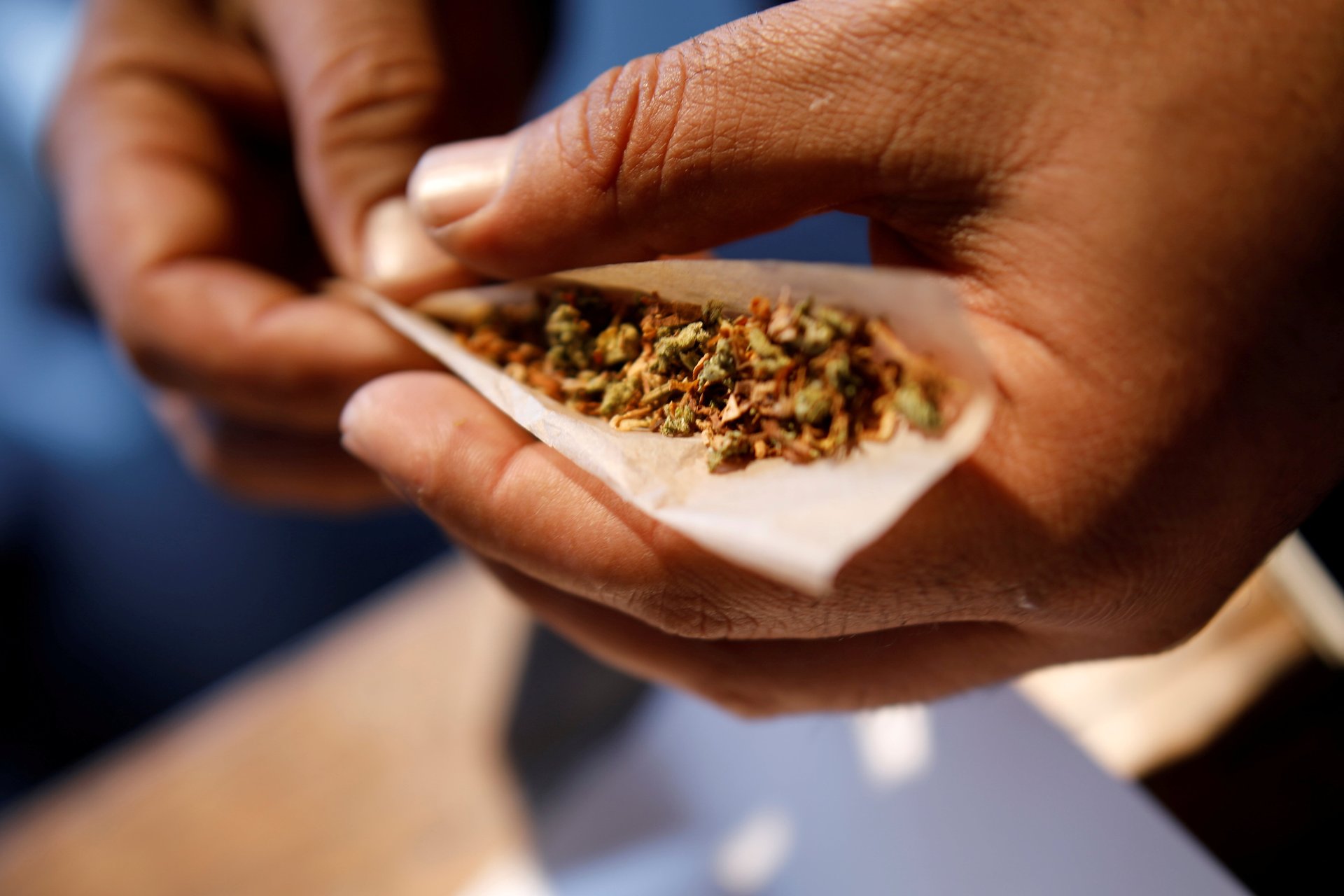A Delhi police statement on a marijuana bust plagiarises from “Weed Guide”
Smoking a specific strain of weed might help you win friends, according to the police in India’s national capital.


Smoking a specific strain of weed might help you win friends, according to the police in India’s national capital.
But don’t view it as gratuitous advice from one of India’s best-known law enforcement agencies—it is not.
This amusing nugget, and more of its kind, were found in the Delhi police’s Dec. 31 press release announcing the arrest of two suspected drug dealers and the recovery of around Rs2.7 crore ($389,000) worth of marijuana imported from the US.
The press release evoked keen interest—besides ample levity on New Year’s eve—and went viral. Particularly noteworthy was a portion that named various cannabis strains, such as Bubba Kush, Pineapple Express, and Grandaddy Purr. There was even a chart that paired each strain with a different side effect, including “laughs at own jokes,” “friends with everyone,” and “intimidating hot,” though it didn’t explain what the phrases meant.
This social-media ribbing seems to have struck a nerve, though. Yesterday (Jan. 01), the press release was quietly updated to remove the chart.
Yet, the amusing graphic was not even its most facepalm-worthy part. Some key statements in the release are patently false.
The arrested individuals obtained the marijuana on the dark web, paying for it in bitcoin and having it couriered to them, according to the police. The dark web comprises parts of the internet that require special software to view; it is often associated with the encrypted Tor network. The press release, however, gets the point about encryption backwards, saying: “Users of the dark web prefer it due to its unencrypted (emphasis added) nature.”
The release also repeatedly refers to the process of buying drugs on the dark web as “safe.” For example, it says that one of the arrested suspects “learnt the process of importing ganja from USA and gradually started procuring ganja from USA through ‘Darkweb’ website, where the accounts and the process is very safe.”
While the police might have meant “safe for criminals,” the use of the word “safe” for a part of the internet known to harbour child pornography, hitmen for hire, and stolen credit card details is rankling, coming from police.
Purchasing drugs on the dark web is not “safe”; among other risks, it is possible for drug manufacturers to sell people “lookalike” drugs on the dark-web, and these concoctions could have dangerous and unexpected health effects. In 2017, police in the UK busted dark-web dealers of counterfeit Xanax, the use of which was linked to mass hospitalisations across the country.
Some of the content in the release, however, is true. Unfortunately, much of it is plagiarised. Entire strings of sentences are lifted from online sources, including the Wikipedia page for “Dark Web.”
In many instances, the lifting has been from websites that market or enthusiastically promote cannabis. For instance some lines are plagiarised from a 2016 piece in Leafly, a website that claims to help users “find an ideal cannabis strain” for themselves.

Others, including one about how a type of weed extract packs a “strong punch,” can be traced back to a web page titled “Best Ways to Smoke Marijuana Wax,” on a site that posts detailed reviews of cannabis strains. Other lines in the release are from a site called Weed Guide.
These instances explain why the press release’s tone, at times, seems enthusiastic about weed, even getting into granular advice on how to smoke it. One line, taken from “Best Ways to Smoke Marijuana Wax,” says a certain type of extract “is good for use with an oil rig but can also be used with other methods.”
The ethics of plagiarism aside, especially coming from a law enforcement agency, police doling out doping tips isn’t exactly a sound move. For one, major news outlets are already quoting some of the plagiarised parts and attributing them to the Delhi police.